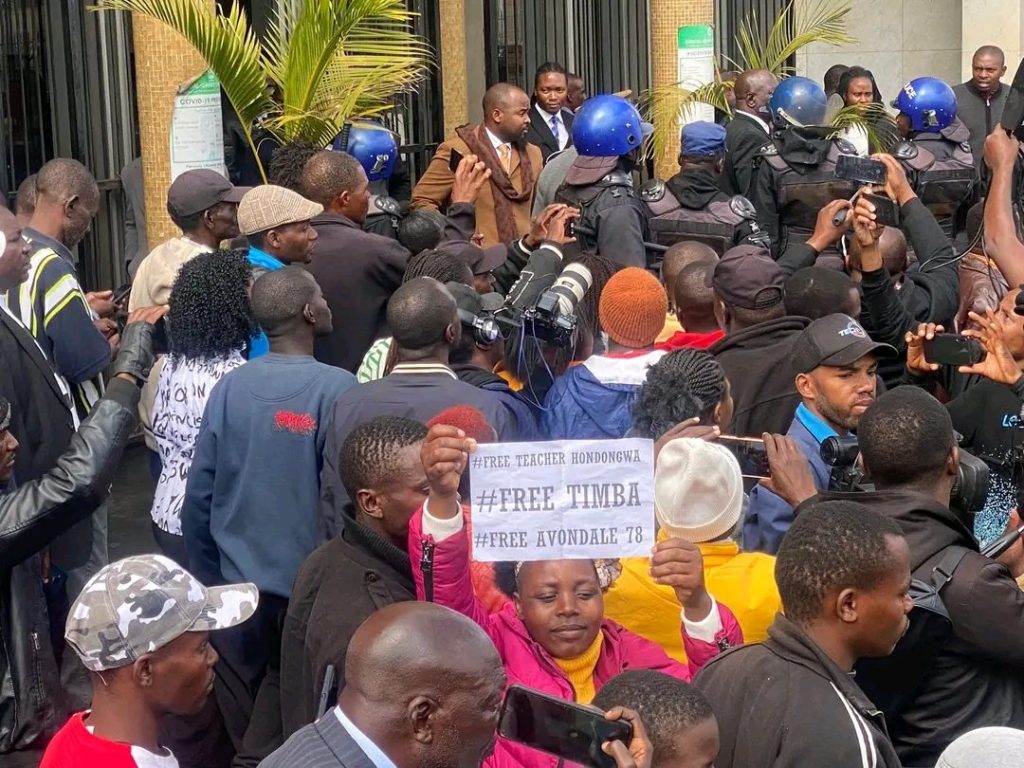A Zimbabwean court has ordered opposition leader Jameson Timba and 65 of his supporters to remain in custody as they await trial on charges related to unlawful assembly. The group, arrested nearly three months ago, was taken back to jail on Wednesday.
Timba, the interim leader of the Citizens Coalition for Change (CCC), and nearly 80 others were detained at his Harare home on June 16. The police alleged that the group was planning to incite public violence. While the Harare Magistrate’s Court acquitted the group of charges related to disorderly conduct, it upheld the charge of participating in an unlawful gathering.
Rights organisations, including Amnesty International, have condemned the charges as politically motivated, asserting that they are part of a broader crackdown ahead of the regional summit in Harare on August 17.

During the long-delayed court hearing, Magistrate Collet Ncube acquitted 12 individuals, including Timba’s 19-year-old son, who was present to deliver a Father’s Day gift. The rest of the group remains in custody, despite having been jailed for nearly 11 weeks.
In a separate development, three pro-democracy activists—Namatai Kwekweza, Robson Chere, and Samuel Gwenzi—were released on bail on Wednesday. They had been detained since July 31 on disorderly conduct charges related to protests against Timba’s arrest. The activists were apprehended at Harare International Airport as they were en route to a civil society conference in Victoria Falls.
Their lawyer, Charles Kwaramba, confirmed that the activists had been subjected to torture, including waterboarding, while in detention. The three activists were required to pay $150 each to secure their release.
Amnesty International reports that over 160 civil society activists and opposition members were arrested in the lead-up to the Southern African Development Community (SADC) summit, where President Emmerson Mnangagwa assumed the chairmanship. The crackdown follows a contested August 2023 election in which Mnangagwa’s ZANU-PF party secured a parliamentary majority.


